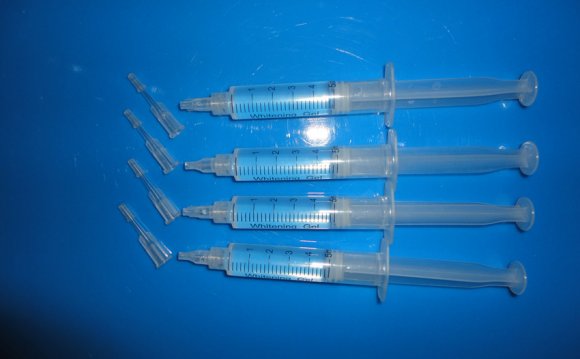
Schlater-Hewlett was using 10% carbamide peroxide gel in a custom-fitted bleaching tray—all of which was prescribed by her dentist. Although you can buy stronger teeth whitening gels, this is the only home teeth whitening treatment to earn the American Dental Association's seal of acceptance. She tried taking a month off before returning to her schedule of bleaching. She even used desensitizing gel before and after treatment.
But her "zingers"—the term dentists use for these sharp pains in the teeth, which can last for several minutes—persisted, and she had to give it up. Schlater-Hewlett eventually got veneers for her teeth, a more elaborate and expensive option. "I'd never try bleaching again, " she says.
Teeth whitening has become a big business. Americans spend billions on teeth whitening products annually, and in dentists' offices, bleaching is the most requested procedure among patients ages 40 to 60, according to a survey conducted by the ADA. And teeth whitening toothpastes are now more popular than any other kind. Bleaching has entered its golden—or shall we say porcelain—era.
But the dangers of teeth whitening are causing problems. Schlater-Hewlett's dentist (who happens to be her husband) is unsure what caused her pain, but her experience isn't as rare as you might expect. In a 2002 University of Southern California School of Dentistry survey of 100 people, half experienced mild to moderate sensitivity after using an over-the-counter-strength whitening gel (15% carbamide peroxide), while 1 in 25 had the kind of pain Schlater-Hewlett suffered.
As more and more patients report trouble, dentists are scrambling to identify who makes a good candidate and who should skip the procedure. The answers are becoming clearer, but researchers are also uncovering what may be the true hazard of whitening—a pursuit of bleached perfection that leads to overuse of these chemicals.
Although more than a third of adults worry that professional teeth whitening will damage their enamel, research suggests that their fears are unfounded. "There's overwhelming evidence that, when used as directed, bleaching does not cause permanent damage to the teeth or gums, " says Edmond R. Hewlett, DDS, consumer advisor for the ADA and an associate professor at the UCLA School of Dentistry (and Schlater-Hewlett's husband).









